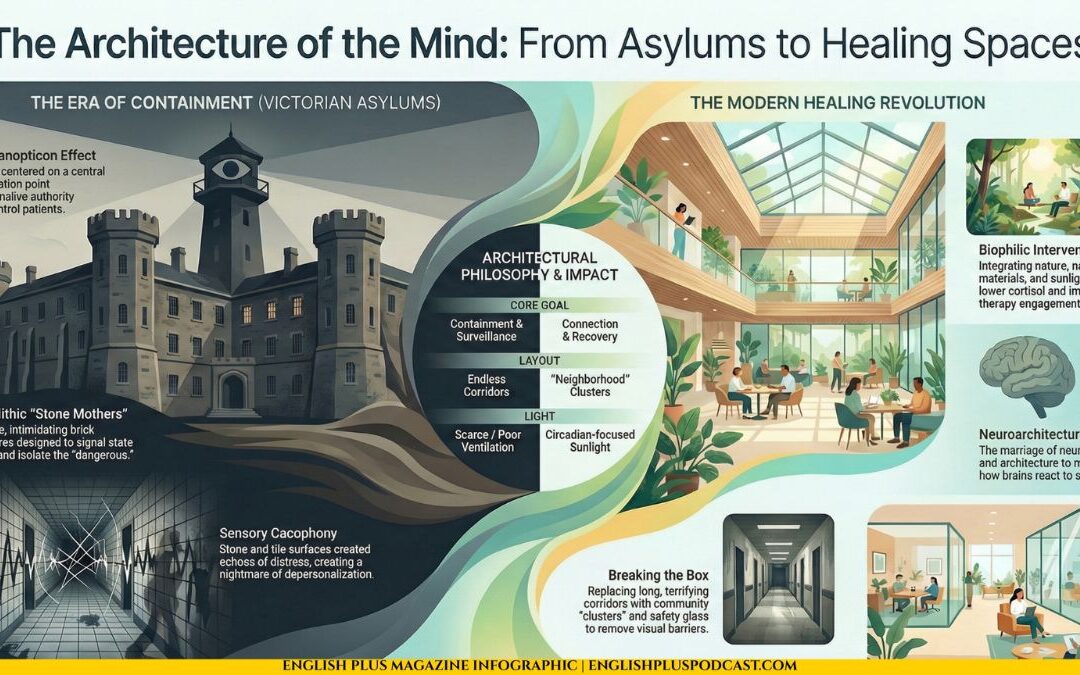Get the premium practice worksheet custom-made for every episode when you become a patron of English Plus Podcast on Patreon.
Subscribe to English Plus Podcast mailing list to get schedule updates and exclusive premium content.
Practice
Practice Worksheet
Transcript
Disclaimer
I am using an automatic transcript service as it is not possible for me to do it on my own and I cannot afford human transcription at the moment. The service claims to have about 95% accuracy, which means there will still be some mistakes, so my apologies for having a less than perfect transcript, but I hope I can afford human transcription soon and I will solve this problem. However, the service is pretty good, and the transcript is almost perfect.
Transcript
Welcome to a new episode from English plus podcast. Today’s podcast is worth Bauer, and we will talk today about a text called meteors. We will talk about meteors and we will learn 10 new words in this word power episode. And if you’re worried that we used to learn more, we’re still going to learn the same.
[00:00:27] But instead of having one long episode, I cut the episode in three and we’re going to have two more word power episodes with the other two topics that I didn’t include in today’s episode. Now, before we start, let me remind you that you can find the transcript of this episode in a link. I will leave in the description and you can also find a link to Patreon where you can support us.
[00:00:50] Support English plus podcast, if you can, because that is the only way that will help us go on and to keep producing those episodes. You like, and by becoming a patron of the show, you will get premium PDF worksheets. For every single episode we create and more benefits are coming your way very soon, but I’m not going to announce them now until I’m pretty sure when they’re going to start, but we’re talking about a matter of a week or two.
[00:01:15] There’s also another link you will find in the description. That will take you to our mailing list. If you subscribe to our mailing list, you will get an update on the schedule every two weeks with every new chapter and you will get selected PDF practice worksheets from the premium selection we offer to our patrons.
[00:01:32] Now, with that being said, let’s start right away with our word power for today. And that is about meteor. Uh, first, let me introduce you to the words you’re going to learn in this episode. We’re going to learn interplanetary emanate encounter, impact depression, celestial, considerable, Harold devise, and onset.
[00:02:00] So without further ado, let’s start with our texts about meteors. I will read it and then I will discuss the meaning of these words in context. So. Meteors on its interplanetary journey through space, a meteor may pass close enough to earth to be drawn to its surface by gravity. As it collides with Earth’s atmosphere, the meteor becomes so hot that it begins to melt away and fall to the surface.
[00:02:29] As it falls through the thickening atmosphere, a stream of glowing particles emanates from it. Most meteors burn to find us soon after they encounter earth atmosphere. However, parts of larger meteors called meteorites may hit the surface, the largest known meteorites weigh about 60 tons. The impact of these meteorites leaves, large circular depressions in the Earth’s crust.
[00:03:00] More than 120 such impact sites from media rights and other celestial bodies are known to exist on earth of these. The Berenger meteor crater in Northern Arizona was the first to be identified. This 600 foot deep bowel shaped depression is surrounded by a 160 foot high rim. Meteors can be seen on almost any clear night.
[00:03:27] But during certain times of the year, they are visible in large numbers. These displays are called meteor showers. Meteor showers have been recorded for more than 900 years until the present century. They were the cause of considerable fear. Many ancient people felt these unexplained light shows heralded some approaching disaster.
[00:03:52] Modern science. However has devised a probable explanation. Most media showers are believed to be debris produced by comments that leave trails of particles behind them as they orbit the sun. The onset of a meteor shower is triggered when Earth’s orbit passes near the course of this stream of debris, the small particles enter Earth’s atmosphere at unusually high speeds.
[00:04:20] Creating a bright, visible display. The largest recording meteorites shower occurred over North America on November the 12th, 1833. Today’s scientists can predict the time and location of a meteor shower on a clear night, a spectacular show of light can be viewed without the aid of a telescope. So that was our text about meteors.
[00:04:45] I hope you find it. Interesting. I hope you learned a couple of things, but of course the most important thing is the words that we’re going to learn from the text. So let’s start with our very first word in the text. We said on its interplanetary journey through space, a meteor may pass close enough to earth to be drawn to its surface by gravity.
[00:05:08] So the word of focus here is interplanetary. That might sound a big word, but actually it comes from planet it’s interplanetary. So what does that mean? Interplanetary space travel is travel between different planets. So interplanetary, that means between planets. That’s the word. For example, we can say the new evidence was gleaned from interplanetary dust, founding cores taken in copper mines in Africa.
[00:05:38] So that was our first word interplanetary, which is spelled I N T E R P L a N E T a R Y. I know it’s long, but it’s worth it. And it’s useful interplanetary. That was our first word. Our second word is emanate E M a N a T E. Emanate now let’s take a look. How we used it in the text. We said, as it falls through the thickening atmosphere, a stream of glowing particles emanates from it, we’re still talking about meteors.
[00:06:13] Of course. What does that mean? The glowing particles emanate from the media. So if something emanates from somewhere, it comes from there and it’s usually kind of glowing, but it doesn’t have to be, it doesn’t have to be glowing. And by the way, it’s not only for things that come from somewhere, we can use it for qualities as well.
[00:06:34] If a quality emanates from you, or if you emanate a quality, you give people a strong sense that you have that quality. For example, we can say intelligence and cunning emanated from him. So that was emanate. Let’s move on to talk about our next word. And our next word in the text is encounter E N C O U N T E R encounter.
[00:07:00] Now let’s see how we use it in the text. In the text. We said most meteors burn to a fine dust soon after they encounter earth atmosphere. So what does that mean when they encounter? If you encounter someone, you meet them. Usually unexpectedly and here we can use it. When we talk about meteor and its encounter with the Earth’s atmosphere, it’s also possible we can use encounter as well to talk about problems or difficulties.
[00:07:29] If you encounter problems or difficulties, you experienced them. For example, we can say every day of our lives, we encounter stresses of one kind or another. But the meaning in the text, remember it’s if you encounter someone or something, you meet them. Usually unexpectedly like the comment and the Earth’s atmosphere, unexpected meeting, but they met.
[00:07:52] So that was encountered. Let’s move on now to talk about the next key word. And that is impact I M P a C T impact. In the text, we said the largest known meteorite weighs about 60 tons. The impact of these meteorites leaves, large circular depressions in the Earth’s crust. Actually, here we have two words, but let’s start with the first one impact the impact of these meteorites.
[00:08:22] It leaves craters. It leaves depressions. So what is the meaning of impact? An impact is the action of one object hitting another, or the force with which one object hits another. So that is the impact. That is one, these pieces, large pieces of rock, actually, when they hit the Earth’s cross, when they hit the ground, the impact.
[00:08:45] Leaves depressions. And now we will talk about depressions in a second, but first impact, as we said, it’s the action of one object hitting another sometimes of course we use impact in a slightly different meaning. We say the impact that something has on a situation process or a person is a sudden and powerful effect that it has on them.
[00:09:04] Now let’s take a look how we can use impact in a sentence. The plane is destroyed. A complete wreck. The pilot must have died on impact, and we use this expression on impact. That means at the very time of impact, not after. So here we have impact and in the same sentence. We use depressions and you might know the word depression.
[00:09:28] That means a mental state in which you are sad, et cetera. But here it’s obviously something else we’re talking about. Meteors. We’re talking about, uh, leaving depressions in the Earth’s crust. So. We’re not talking about the mental state of the Earth’s crust, obviously. What does it mean? But first, how do we spell it?
[00:09:48] We spell it. D E P R E S S I O N depression. And here in the text, we said depressions, the impact of these meteorites leaves, large circular depressions in the Earth’s crust. Uh, depression. We said, yeah, we can use it for mental state, specially when you’re sad and you feel you cannot enjoy anything. That’s depression obviously, but the depression in a surface is an area which is lower than the parts surrounding it.
[00:10:16] Of course not all depressions in the land are caused by meteors. We have a lot of other reasons, but meteors can cause these depressions that we see in some areas around the world, So that is depression. Now let’s move on to talk about the next word. And that is celestial. C E L E S T I a L celestial. Now in the text, we said more than 120 such impact sites from meteorites and other celestial bodies are known to exist on earth meteorites.
[00:10:50] We know what they are by now, but what are those other celestial bodies? When we talk about something celestial, we use it to describe things relating to heaven or to the sky. So celestial bodies, we’re talking about those bodies that come from the sky from heaven. Now we can use celestial to describe something.
[00:11:09] And if you describe something as celestial, it doesn’t have to be coming from the sky. You mean that it is wonderful. That is another use. Another common use of celestial. Actually, for example, we can say. In the process of their careful watching and recording the celestial movement, the Chinese provided valuable and interesting information for succeeding generations.
[00:11:33] So that was celestial. Now let’s move on to talk about the next word. Considerable, C O N S I D E R a B L E. Considerable and the texts we said until the present century, they were the cause of considerable fear. Those sites, the meteor showers, we were talking about media showers and the site of these media showers were the cause of considerable fear.
[00:11:59] So are we talking about just any kind of fear? That’s not a big deal or considerable is a big deal? Well, actually it is considerable means great in amount or degree. For example, we say vets fees can be considerable even for routine visits. So that was considerable. Now let’s move on to talk about the next word in the text.
[00:12:23] We said many ancient people felt these unexplained light shows heralded some approaching disaster. Our word is Harold. H E R a L D Harold. Now some people, especially ancient people we’re talking about here felt these heralded, these light shows heralded some approaching disasters. These were here to tell us that there is a big disaster coming.
[00:12:51] So what is the meaning of Herald something that heralds a future event or situation is a sign that it is going to happen or appear. And that is the meaning we have in the text, but we can use Herald in a slightly different meaning if an important event or action is heralded by people, announcements are made about it so that it is publicly known and expected, especially in the old times when there were Kings and Queens, and there were no means of communication like we have today, there was a Herald.
[00:13:22] Of the King or the queen, they would come and they would have scrolls. And these would be announcements from the Kings Queens, princes, et cetera. So that is Harold. We can say, for example, their discovery could Herald a cure for some forms of cancer. So that was Harold. Let’s move on to talk about the next key word.
[00:13:42] And that is device and here pay attention. I’m saying device, not device. Because that would be another word. Let’s take a look. How we use it in the text. We said modern science, however, has devised a probable explanation. Now people in the ancient times, couldn’t tell, couldn’t explain how these things happened.
[00:14:01] The meteor showers and all that, but modern science devised a probable explanation. Now here device is D E V I S E. The other word that we pronounce device it’s D E V I C E not S E, but this one device is a verb. D E V I S E. What does it mean if you devise a plan system or machine you have the idea for it and design it?
[00:14:31] So that is to devise a probable explanation. It can be an explanation. It can be a plan. It can be a system. It can be a design that is to device. For example, we can say great efforts have been made to devise cotton picking machines, but as yet complete success has not been obtained. So that was device.
[00:14:52] Now let’s move on to talk about the last word for today’s episode. And that is onset O N S E T. Onset. Let’s take a look. First, how we used it in the text, we said the onset of a meteor shower is triggered when Earth’s orbit passes near the course of this stream of debris. Now here, we’re talking about it scientifically, obviously we’re not talking about how ancient people saw it as a Herald of some disaster or something.
[00:15:20] It might be disastrous. Of course, we know that not from movies, but we know that they have the power to destroy planet earth. As we know it. But thankfully we’ve been lucky enough to avoid all these great meteor showers that might cause our extinction, for example, but let’s not be dramatic about that.
[00:15:38] And let’s go back to unset, O N S E T. What does it mean? The onset of a meteor shower is triggered when earth orbit passes near the course of the stream of debris. The onset of something is the beginning of it. And we use it specially to refer to something unpleasant. Now I want you to keep that in mind, because onset is usually used for something unpleasant.
[00:16:01] We don’t usually use it to talk about beautiful things or pleasant things. For example, we can say most of the passes have been closed with the onset of winter. I wouldn’t say winter is an unpleasant thing, but the closing of these pasts is an unpleasant thing. The onset of winter in this way is an unpleasant thing.
[00:16:22] How would that being said, these would be all the words I want to talk to you about today. Before I leave you, let me remind you that you can find the transcript of this episode in a link. I will leave in the description. You will also find the link to Patreon. Take the link, become patrons of English, plus podcasts, support us and help us continue creating the content you love.
[00:16:40] And by becoming our patron on Patreon, you will get premium PDF worksheets for every single episode we create. And there’s more benefits coming your way. As I said earlier in the episode, which I will announce very soon, there’s another link to our mailing list. You can subscribe to our mailing list. And get an update every two weeks of the new chapter that we add every two weeks, we will know about all the new episodes that are coming your way in the coming two weeks.
[00:17:05] And we will select some of our premium PDF practice worksheets, and we will send them to you as a token of our gratitude for your subscribing to our mailing list. That being said, thank you very much for listening to another episode from English plus podcast. This is your host, Danny. I will see you next time.











0 Comments